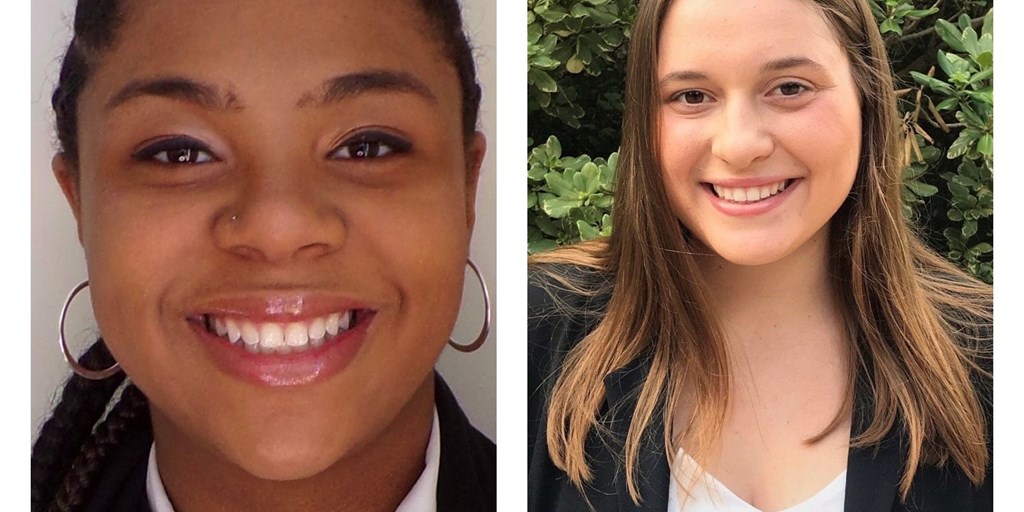
Real Life Reflections with NNA Interns

From a national student protest to an eye-opening course on economic inequality, Tahari Williams and Michelle Dobin discuss how their work interning with National Neighborworks Association overlapped with real-time classroom experiences.
Tahari is a junior at Howard University and Michelle is a first-year Master's student at The George Washington University's School of Public Policy and Public Administration.
Tahari: Political Science is known as a broad field of study because it leads people to many different career opportunities and allows us to realize how our individual thoughts and actions ultimately affect society as a whole. For example, I became a political science major at Howard University with hopes of identifying and combatting the social and political problems in my community, and this led me directly to my Membership & Policy Internship at National Neighborworks Association. At NNA I learned more about affordable housing and community development than I ever had while sitting in a classroom. This is largely due to the fact that my academic work mostly reflects the theoretical discussion of affordable housing and social change, while my work at the National Neighborworks reflects the actual planning, execution, and practice of local and federal advocacy.
My experience interning with NNA not only allowed me to witness the actual legislative process, but it has also given me the tools and wisdom to advocate for myself and my community outside of the classroom. After witnessing firsthand the unsafe and dirty living conditions in the Howard University dorms, student advocates started a protest on campus that lasted 34-day and got the attention of the national media. Although I live off-campus, I used the knowledge and advocacy skills that I learned from interning with NNA to actively help the protestors in their fight to obtain safe living conditions in the dorms. This made me recognize how the issue of safe and affordable housing affects the entire country as a whole, right down to my own campus community. Although I still have much to learn, both at school and in my internship, I was able to recognize the intersection between practice and theory and gained a greater desire to promote social change. I know this will help me in my future endeavors of becoming an attorney once I finish my undergraduate degree at Howard.
Michelle: As a first-semester Master of Public Administration student at the George Washington University, I have already seen many connections between my work at NNA and in the classroom. While, I have just begun my studies, but my classes have already delved into the inequality seen in public administration. I've noticed the majority of my professors have not tried to present Public Administration through rose-colored glasses, which has helped me develop a deeper understanding of the field and recognize how we can improve on how our governmental systems operate. It has become clear how crucial it is for administrators to listen to organizations like NNA members who promote the needs of their communities.
The class that has resonated with me the most thus far is Economics for Public Decision-Making. Although I was aware of racial economic barriers prior to this course, I have learned just how deeply integrated racism is in our economic system. Over the past few weeks, we have discussed the many inequities in economics, from underrepresentation in the field to policies that inhibit marginalized communities from accumulating wealth. Despite the pervasiveness of economic inequality, data shows that there seems to be little done at a federal level to help disenfranchised groups. This emphasizes the importance of NNA’s mission to advocate for economic opportunities for all communities in our country. One key factor to wealth accumulation is homeownership, an issue I have seen NNA members champion for throughout my time here. It is important we continue to have organizations working with our government to fight for even the most vulnerable people, not just those with power. I have greatly enjoyed the opportunity to work so closely with an organization whose goal is to build strong communities while applying the lessons from my coursework along the way.